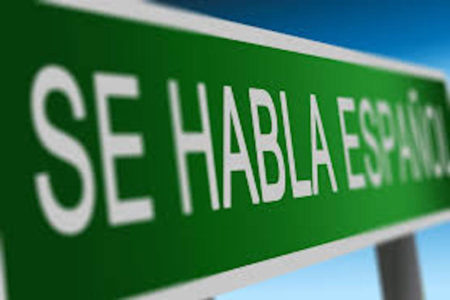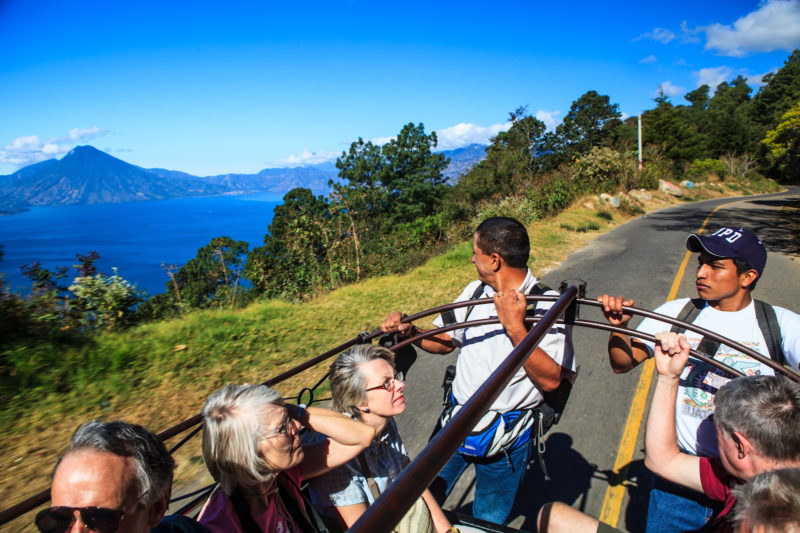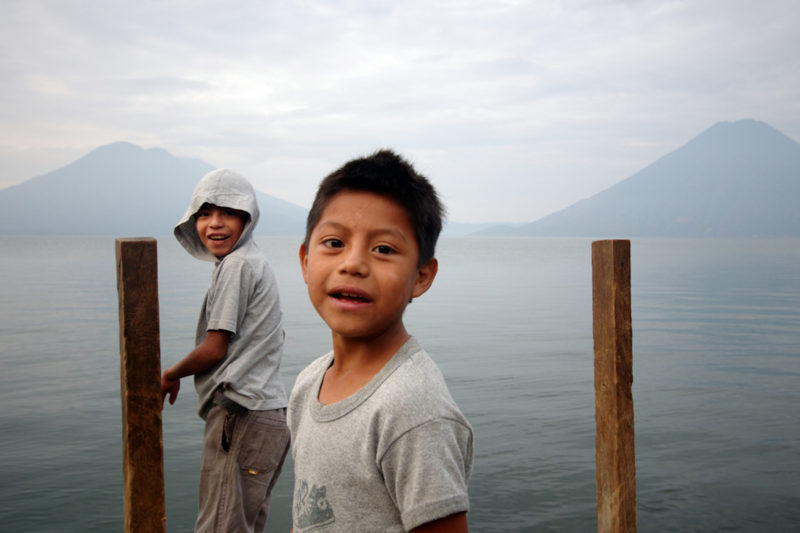 Hola! Are you planning to travel in Guatemala and lacking proficiency in Spanish? Fear not! You’ll meet lots of friendly folks here who are bilingual, especially in the tourism industry. However, it’s advisable to have at least a basic knowledge of the language to help you get around easily and to thoroughly enjoy your trip.
Hola! Are you planning to travel in Guatemala and lacking proficiency in Spanish? Fear not! You’ll meet lots of friendly folks here who are bilingual, especially in the tourism industry. However, it’s advisable to have at least a basic knowledge of the language to help you get around easily and to thoroughly enjoy your trip.
Spanish in Guatemala is spoken in a clear, slow (compared to many other Latin American countries) and lyrical manner. And since there are 22 indigenous languages spoken in the country, the majority of the population—people of Mayan descent—are speaking Spanish as a second language, too.
Everyday Phrases
“Con permiso.”
Translation: “Excuse me.” This phrase is useful if you need to get by someone who is in your way. If you say it, they will move and let you through.
“Disculpe.”
Translation: “Excuse me.” This second way of pardoning yourself is a polite word to use if you are going to ask someone for assistance. As in, “Disculpe… dónde está el baño?”
“No, gracias.”
Translation: “No, thank you.” In the popular tourist towns like Antigua and Panajachel, loads of street vendors will approach you with their wares—everything from beaded keychains to wooden flutes. Unless you are prepared to be swarmed and possibly convinced to buy a bunch of stuff you neither want nor need, just keep walking, smiling and repeating, “No, gracias.”
“Buen provecho.”
Translation: “Enjoy your meal.” People say this to each other before and/or after eating a meal.
The Guatemalan version of bon appetit, it is literally a wish that you may take advantage of the food you are about to eat or have just eaten. At first, it may seem superfluous, but once you get used to it, you’ll find that saying “buen provecho” is a lovely and unique mealtime custom.
“Si, pues.”
Translation: “Of course.” Okay, so this one isn’t so much for survival as fitting in. It’s a popular phrase of agreement that can be used in just about any conversation.
“Cabal.”
Translation: “Exactly.” Guatemalans love this word. It’s used in conversation to mean, “right,” or “I totally agree.” Use it and sound like a local.
“Que le vaya bien.”
Translation: “May you be well.” People will say this to you anytime you leave their presence—vendors, waiters, friends, taxi drivers, pretty much everybody. It is a kind and positive wish that will make a great addition to your Spanish vocabulary.
Getting Help
“Necesito ayuda, por favor.”
Translation: “I need help, please.” It never hurts to use your manners when asking for assistance.
“¿Dónde está el baño?”
Translation: “Where is the bathroom?” When you gotta go, you gotta go. Public restrooms often charge Q2 for a single serving of toilet paper and use of their facilities, which might be clean, if you’re lucky.
“¿Cuanto cuesta?”
Translation: “How much does it cost?” Another, perhaps more authentic way of asking the price of something is, “A como está _______?” For example, if you’re buying bananas at the market, you’d could either say,“Cuanto cuestan los bananos?” or “¿A como están los bananos?”
“¿Dónde está la lancha?”
Translation: “Where is the water taxi?” This can be used when sorting out your transportation to the next pueblo at any of the docks on the Lake. After saying this, add an “a” to say “to” where your destination is. For example, if you’re at the dock in Panajachel you could say, “Dónde está la lancha a San Marcos?”
Kaqchikel
Impress the locals with speaking Kaqchikel, the traditional Mayan language.
“Utz matiox.”
“Oots ma-tee-osh”. Translation: “Thank you very much.”
“Mané matiox.”
“Ma-nay ma-tee-osh.” Translation: No thank you.”
Practice Makes Perfect
Remember, the only way to learn anything, including Spanish, is through practicing and making plenty of mistakes. So, don’t be shy. The people here will appreciate your effort. They may even help correct your pronunciation or supply you with a new vocabulary word. So go out there and give it a try. Good luck!

